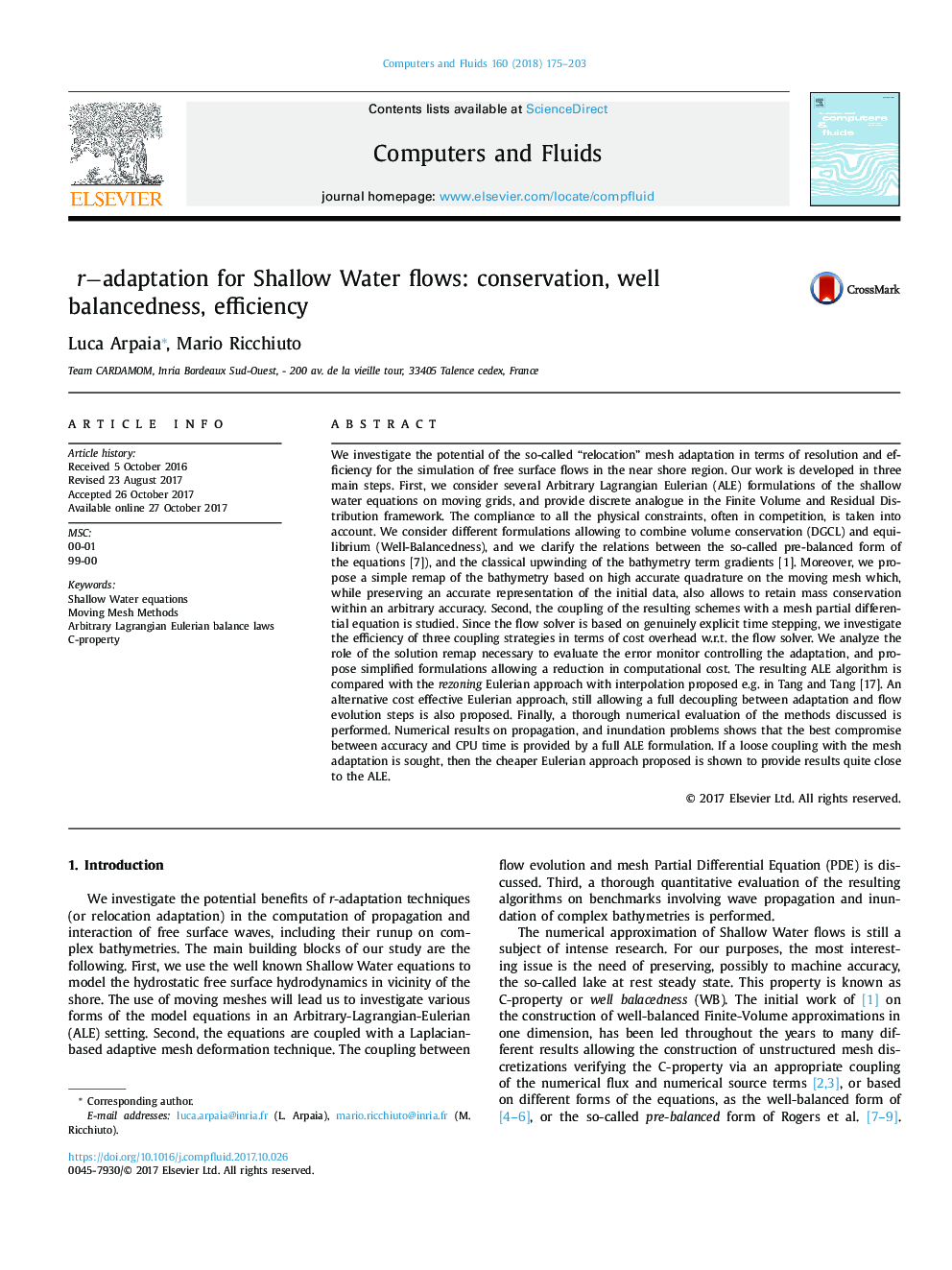| کد مقاله | کد نشریه | سال انتشار | مقاله انگلیسی | نسخه تمام متن |
|---|---|---|---|---|
| 7156548 | 1462651 | 2018 | 29 صفحه PDF | دانلود رایگان |
عنوان انگلیسی مقاله ISI
râadaptation for Shallow Water flows: conservation, well balancedness, efficiency
دانلود مقاله + سفارش ترجمه
دانلود مقاله ISI انگلیسی
رایگان برای ایرانیان
کلمات کلیدی
موضوعات مرتبط
مهندسی و علوم پایه
سایر رشته های مهندسی
مکانیک محاسباتی
پیش نمایش صفحه اول مقاله

چکیده انگلیسی
We investigate the potential of the so-called “relocation” mesh adaptation in terms of resolution and efficiency for the simulation of free surface flows in the near shore region. Our work is developed in three main steps. First, we consider several Arbitrary Lagrangian Eulerian (ALE) formulations of the shallow water equations on moving grids, and provide discrete analogue in the Finite Volume and Residual Distribution framework. The compliance to all the physical constraints, often in competition, is taken into account. We consider different formulations allowing to combine volume conservation (DGCL) and equilibrium (Well-Balancedness), and we clarify the relations between the so-called pre-balanced form of the equations [7]), and the classical upwinding of the bathymetry term gradients [1]. Moreover, we propose a simple remap of the bathymetry based on high accurate quadrature on the moving mesh which, while preserving an accurate representation of the initial data, also allows to retain mass conservation within an arbitrary accuracy. Second, the coupling of the resulting schemes with a mesh partial differential equation is studied. Since the flow solver is based on genuinely explicit time stepping, we investigate the efficiency of three coupling strategies in terms of cost overhead w.r.t. the flow solver. We analyze the role of the solution remap necessary to evaluate the error monitor controlling the adaptation, and propose simplified formulations allowing a reduction in computational cost. The resulting ALE algorithm is compared with the rezoning Eulerian approach with interpolation proposed e.g. in Tang and Tang [17]. An alternative cost effective Eulerian approach, still allowing a full decoupling between adaptation and flow evolution steps is also proposed. Finally, a thorough numerical evaluation of the methods discussed is performed. Numerical results on propagation, and inundation problems shows that the best compromise between accuracy and CPU time is provided by a full ALE formulation. If a loose coupling with the mesh adaptation is sought, then the cheaper Eulerian approach proposed is shown to provide results quite close to the ALE.
ناشر
Database: Elsevier - ScienceDirect (ساینس دایرکت)
Journal: Computers & Fluids - Volume 160, 4 January 2018, Pages 175-203
Journal: Computers & Fluids - Volume 160, 4 January 2018, Pages 175-203
نویسندگان
Luca Arpaia, Mario Ricchiuto,